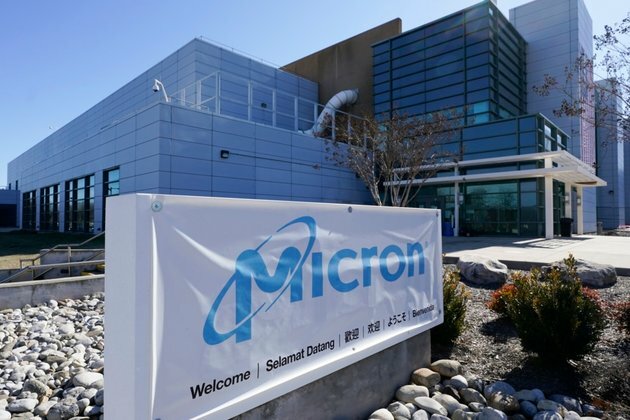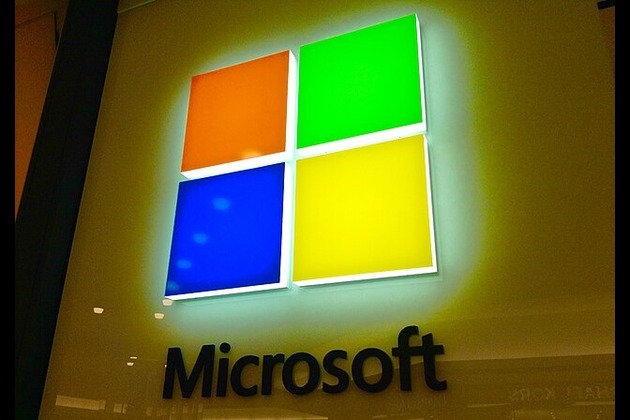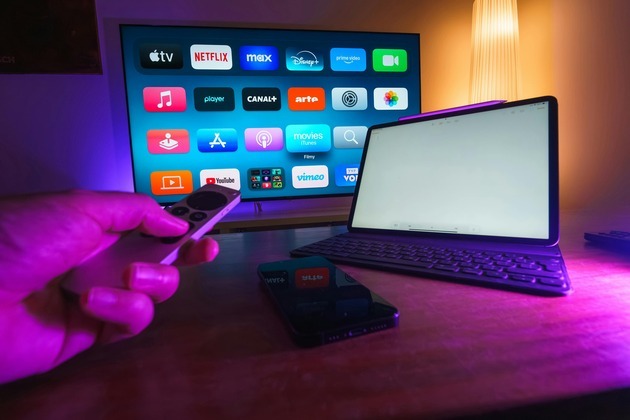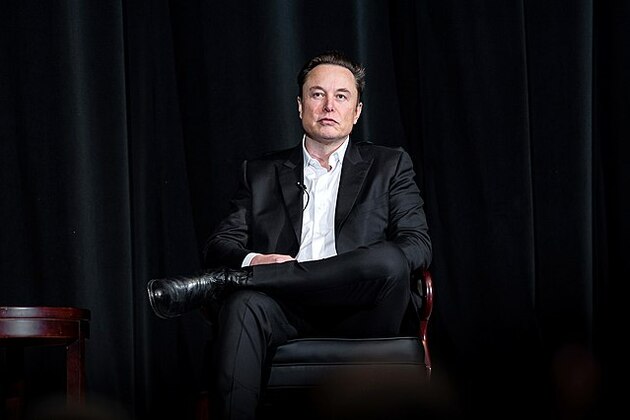China's Micron Chips Ban Is Litmus Test for South Korea
Voice of America
01 Jun 2023, 18:40 GMT+10

Washington - The semiconductor trade war between Washington and Beijing may ensnare Seoul as South Korea must decide between backing its closest ally or embracing a lucrative export opportunity presented by China, its top trading partner.
The decision will reveal how closely South Korea is aligned with the U.S., its second-largest export market, experts said.
The dilemma facing Seoul emerged after China announced that it was banning the use of U.S.-based Micron Technology's broad range of computer memory and storage technologies.
Liu Pengyu, a Chinese Embassy spokesperson in Washington, told VOA's Korean Service on May 24 that Beijing's cybersecurity regulators had assessed that Micron's chips "pose a major security risk to China's key information infrastructure supply chain and impact China's national security."
The ban echoed that set by the U.S. on China's Huawei Technologies in May 2019, when the Trump administration cited security concerns related to the company's wireless networking equipment, especially those related to 5G. The Biden administration in November 2022 banned approvals of new telecommunications equipment from Huawei and ZTE because the products pose "an unacceptable risk" to U.S. national security.
U.S. Representative Mike Gallagher, the Republican chairman of the House Select Committee on Strategic Competition between the United States and the Chinese Communist Party, has called for South Korea to "act to prevent backfilling" the market gap left by Micron.
Litmus test
The U.S. has been trying to block China's access to the technology needed to make advanced chips that can be used to modernize its military. Micron's chips are used by Chinese industries that assemble consumer electronics such as smartphones. Although Beijing is funding the development of home-grown advanced chips such as those used in artificial intelligence applications, China's chipmakers, for now, manufacture simpler products such as those used in home appliances.
Seoul's decision on whether to dissuade its top chipmakers such as Samsung or SK Hynix from selling chips to China could indicate how closely South Korean President Yoon Suk Yeol is aligned with Washington.
"This would certainly be a litmus test to see if Seoul and other allies are willing to support Washington's policies designed to slow China's technology growth," said Andrew Yeo, the SK-Korea Foundation chair in Korea Studies at Brookings Institution.
Robert Rapson, who served as charge d'affaires and deputy chief of mission at the U.S. embassy in Seoul, 2018-2021, said, "This is the first real test of the Yoon administration's policy of enhanced alignment with the U.S. on China."
He continued, "In other words, will [South] Korea sacrifice core economic, commercial interests of its flagship high-tech companies in keeping with [Washington's] policy and U.S. wishes?"
He added that Seoul has the right to seek "some credit or offset" from Washington if it blocks backfilling the Micron gap.
A business decision
A spokesperson for the South Korean Foreign Ministry told VOA's Korean Service on Tuesday that the government "plans to continue efforts to protect the interest of our companies through cooperation with relevant agencies and engagements with diplomatic missions abroad."
South Korea sent 55% of its semiconductor exports to China last year even as
its semiconductor exports have been in a steep decline since August 2022, according to a Bank of Korea report released on Tuesday, cited by Business Korea.
Robert Manning, a senior fellow at the Stimson Center's Reimagining U.S. Grand Strategy Project, said "As the security environment in Northeast Asia has become fraught with North Korea's provocative nuclear efforts and Chinese economic coercion, the U.S.-ROK alliance has become more vital to Seoul." South Korea's official name is the Republic of Korea (ROK).
"South Korea will [need to] sacrifice to a degree to sustain broad alignment with the U.S.," Manning said. "But South Korea has its own interests so there are likely to be limits."
Troy Stangarone, senior director at Korea Economic Institute, said, "While China might face short-term shortage in chips if Samsung and SK Hynix withheld capacity, the ultimate result would only be the further expansion of domestic Chinese semiconductor firms which undermine U.S. long-term goals and potentially the very firms the United States is working with to improve its own supply chains."
Dennis Wilder, senior director for East Asia affairs at the White House's National Security Council during the George W. Bush administration, said, "This is a business decision, and it really should, in my view, be left to the South Korean companies to make this business decision."
Wilder continued, "But it's far more important for South Korea to align with the United States on the very high-end semiconductor chips and the attempts to keep things out of the hands of the Chinese military that can help modernize."
Beijing's ban came on the last day of the Group of Seven countries summit on May 19-21. The group agreed to de-risk the global economy and diversify trade away from China in an effort to counter its economic coercion. This is defined as "a threatened or actual imposition of economic costs by a state on a target with the objective of extracting a policy concession," according to testimony by Bonnie Glaser, managing director, of the German Marshall Fund Indo-Pacific program, before the Congressional-Executive Commission on China.
U.S. Commerce Secretary Gina Raimondo said on Saturday that Washington "firmly opposes" China's ban on Micron. She made the remark at a press conference held after the meeting of the U.S.-led Indo-Pacific Economic Framework (IPEF) that China sees as a body aimed at countering its economic rise.
On Monday, an article in Chinese state-run media Global Times said it would be "natural" for South Korea's chipmakers to export to fill the market void left by the Micron ban.
"There is no possibility for South Korea to replace its chips with other goods in its exports to China," the report said.
And on Sunday, Bloomberg quoted an unidentified source familiar with the situation as saying South Korea will veer away from supplying chips to China.
South Korea's exports to China in April were $9.52 billion while exports to the U.S. reached $9.18 billion, according to the Trade Ministry's latest data. The gap between South Korea's exports to China and the U.S. narrowed to just $340 million in April from $1.15 billion in January driven by a strong dollar and EV demand.
 Share
Share
 Tweet
Tweet
 Share
Share
 Flip
Flip
 Email
Email
Watch latest videos
Subscribe and Follow
Get a daily dose of Austin Globe news through our daily email, its complimentary and keeps you fully up to date with world and business news as well.
News RELEASES
Publish news of your business, community or sports group, personnel appointments, major event and more by submitting a news release to Austin Globe.
More InformationBusiness
SectionFilmmaker joins biotech effort to bring back extinct giant bird
WASHINGTON, D.C.: Filmmaker Peter Jackson's lifelong fascination with the extinct giant New Zealand flightless bird called the moa...
India seeks WTO nod for retaliatory tariffs on US
NEW DELHI, India: India has submitted a revised proposal to the World Trade Organization (WTO) in Geneva to implement retaliatory tariffs...
AI boom propels Nvidia to historic market cap milestone
SAN FRANCISCO, California: Nvidia, the Silicon Valley chipmaker at the heart of the artificial intelligence boom, this week briefly...
AI saves $500 million for Microsoft as layoffs reshape strategy
REDMOND, Washington: Artificial intelligence is transforming Microsoft's bottom line. The company saved over US$500 million last year...
FTC’s rule to ease subscription cancellations struck down by court
WASHINGTON, D.C.: A federal rule designed to make it easier for Americans to cancel subscriptions has been blocked by a U.S. appeals...
Musk’s X loses CEO Linda Yaccarino amid AI backlash, ad woes
BASTROP, Texas: In a surprising turn at Elon Musk's X platform, CEO Linda Yaccarino announced she is stepping down, just months after...
Texas
SectionCDC: US records 1,288 measles cases, most since 1992 outbreak
ATLANTA, Georgia: The United States is facing its worst measles outbreak in more than three decades, with 1,288 confirmed cases so...
Deadly July 4 flash floods renew alarm over NWS staffing shortages
WASHINGTON, D.C.: After months of warnings from former federal officials and weather experts, the deadly flash floods that struck the...
U.S. Treasury Secretary says Musk should steer clear of politics
WASHINGTON, D.C.: Elon Musk's entry into the political arena is drawing pushback from top U.S. officials and investors, as his decision...
MLB roundup: Garrett Crochet tosses first shutout in Red Sox win
(Photo credit: Eric Canha-Imagn Images) In his 51st career start, Garrett Crochet accomplished two feats in one dominant outing:...
Denis Bouanga provides offense as Los Angeles FC shut out Dallas
(Photo credit: Gary A. Vasquez-Imagn Images) Denis Bouanga earned a penalty, scored from the spot and assisted on a goal, all in...
Goalkeepers step up as New England, Austin FC play to scoreless draw
(Photo credit: Dustin Safranek-Imagn Images) Missed opportunities were plentiful and both goaltenders had the highlight plays as...













